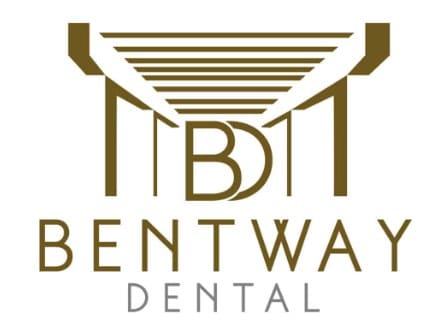A new sound like your jaw clicking while you are chewing strikes more than curiosity. It can also sound an alarm that something like TMJ could be wrong. Dentists understand that unusual sounds can mean several things, which is why they like to examine a patient before making a diagnosis.
Jaw clicking sounds while chewing could be a symptom of TMJ but it can also lead to several other possibilities. Fortunately, none of the diagnoses are dangerous. However, they should be addressed.
Four Conditions Besides TMJ
A jaw clicking noise while you chew could be the symptom of several different issues. Below are the possible answers.
Bruxism or Teeth Grinding
People who grind their teeth or clench their jaws may not even realize they are doing it. Often, this occurs at night during sleep. The constant pressure on the jaws could lead to the clicking sounds.
Teeth grinding or clenching can crack and chip teeth. It will leave you with sore jaws in the morning. It can be remedied by wearing a nightguard to reduce pressure on jaws and protect teeth.
Arthritis
Osteoarthritis or rheumatoid arthritis may be a problem. It affects jaw joints and that could lead to the jaw clicking occurring while you eat.
Malocclusion
Malocclusion is a term for misaligned teeth. In this case, the clicking sound would be coming from your back teeth rather than your jaw.
Muscle Tension
Those who are under immense stress could have jaw and facial muscles tighten, leading to the clicking sound.
Looking at TMJ
Temporomandibular Joint Disorder (TMJ) refers to issues specifically with the jaw joint as it connects with the skull. This can cause jaw popping.
Jaw clicking or popping isn’t the only symptom stemming from TMJ. Those with it find it painful or difficult to open their mouths fully. Jaw pain, headaches, and earaches are associated with TMJ.
Not every jaw popping episode relates to TMJ. It’s normal to hear a clicking sound when you open your mouth wide. It becomes more of a concern when you hear the sound when your mouth is only partially open as in chewing. That’s a signal the cartilage that provides support to your jaw joint, called the articular disk, is sliding out of place.
TMJ Causes
TMJ can be caused by the same issues listed as possible causes of the jaw clicking apart for TMJ, namely bruxism, muscle tension, arthritis, and teeth misalignment is different from those other issues because it is causing advanced problems like headaches, earaches, and jaw pain.
Remedies for TMJ and Other Jaw Issues
The remedies for TMJ and the other four related problems are nearly the same, except for malocclusion. Misaligned teeth can be straightened through orthodontics. Straight teeth help your overall appearance but, more importantly, help with chewing.
Treatment Options Include:
- Lifestyle changes and stress management
- Using a nightguard for teeth grinding
- TMJ physical therapy sessions
- Trigger-point massage on jaw joints
- Over-the-counter pain medications
- Prescription anti-anxiety medication when needed
- Surgery (reserved for extreme cases only)
Lifestyle changes and some home remedies can do much to help eliminate jaw problems and the jaw clicking noise. Many of the changes need to come in how you handle stress to stop habits like teeth grinding and chewing fingernails. Halting other habits like gum chewing and chewing on ice can also help.
Using a nightguard, scheduling TMJ physical therapy, and doing trigger-point massage where you rub your jaw joints helps. Medications from over-the-counter pain medications to prescription anti-anxiety medication may be something to consider.
Surgery is another solution but that is done only in extreme cases.
Are you concerned about the clicking sound your jaw is making? Talk to us. We can examine your mouth and offer suggestions!
Jaw Joint FAQs
What does it mean when I wake up with sore jaws?
Waking up with sore jaws could mean you are clenching your jaws or grinding your teeth in the night. Try a trigger-point massage on your jaw joints to see how that feels.
Why does it hurt to open my mouth wide?
You could have TMJ but you could also just have tight jaw muscles. Try some jaw exercises where you move your jaw up and down and side-to-side to see if that causes pain.
Can you cure TMJ?
TMJ is not curable but it can be heavily reduced where it doesn’t give you any problems. Much of remedying TMJ is learning how to relax so you don’t carry tension in your face.
How do I stop teeth grinding?
A nightguard works really well to stop teeth grinding at night but some will clench or grind their teeth during the day. For that, you will need to consciously stop the habit. Do that by first making yourself aware of what triggers you to clench or grind. Then, focus on relaxing your jaw in those moments.



